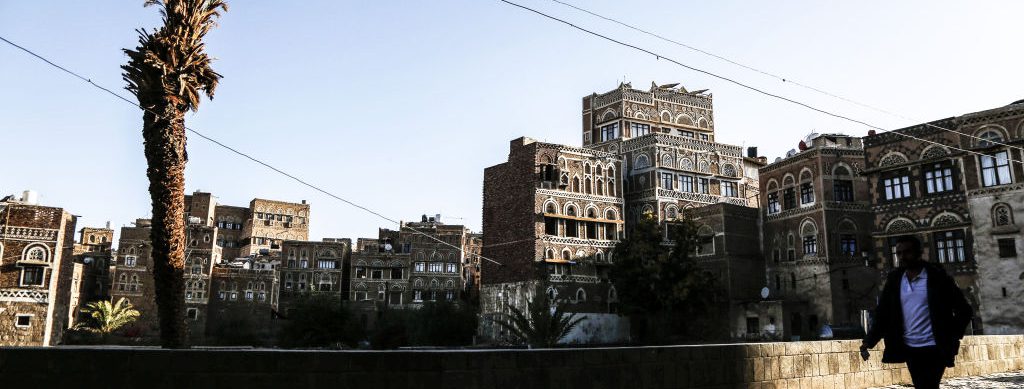The Huthi de facto authorities must immediately and unconditionally release five members of the Baha’i community who have been arbitrarily detained in Sana’a without charges for almost a year as part of the ongoing persecution of people of the Baha’i minority faith, Amnesty International said today, amid concerns that the men might be at risk of further violations, including torture and other ill-treatment.
On 25 May 2023, Huthi armed forces stormed a peaceful gathering of the Baha’is in a private residence in Sana’a and arbitrarily detained 17 people, including five women. They forcibly disappeared them for around four months until their families learned they were being held at Huthi-run security and intelligence detention centres in Sana’a. Between June and December 2023, 12 individuals including all five women were released following international pressure. However, five remain arbitrarily detained and are being denied their right to legal counsel.
The five Bahai’s still arbitrarily detained include two humanitarian workers, Abdul’elah Muhammad al-Boni, 30, and Hassan Tariq Thabet Al-Zakari, 28, and a human rights activist, Abdullah al-Olofi, 45. The other two are Muhammad Bashir Abdel Jalil, 25, and Ibrahim Ahmad Jo’eil, 49.
“It’s completely unacceptable that people are being targeted and put behind bars simply for exercising their rights and practising their religion and belief. The relentless persecution of members of the Baha’i community has gone on for too long with total impunity. It’s high time this travesty of justice ends,” said Diala Haidar, Yemen Researcher at Amnesty International.
“Huthi authorities must immediately end all forms of discrimination and persecution of the Baha’i minority and all others who are targeted solely for the peaceful exercise of their right to freedom of religion and belief. The Baha’is and members of any other minority faiths must be allowed to freely practice their religion without discrimination or reprisals.”
According to credible sources, the Huthis demanded a guarantor and the payment of a “commercial guarantee” as conditions for releasing the 12 detained Baha’is. As a precondition for release, some of those freed were forced to sign pledges denouncing their religion in flagrant violation of their right to freedom of religion and belief.
Huthis are well aware of the impact of their hate-filled words, yet they continue to shamefully incite violence against Baha’is and other religious minorities.
Diala Haidar, Amnesty International
In a separate incident in 2020, Huthis released six other Baha’i detainees after about seven years of arbitrary detention on condition that they would go into exile, which they did. Forcing people into exile on account of religious beliefs or political opposition constitutes an egregious violation of international human rights law.
Hate speech to incite violence against minorities
The detention of Baha’is on account of their faith violates Yemen’s obligations under international law and is part of a wider crackdown on minorities by the Huthi authorities that Amnesty International has been documenting since 2015. On several occasions, public officials have incited violence and discrimination against the Baha’is in public speeches.
Weeks before the arbitrary detention of the 17 Baha’is, Abdel Malek al-Huthi, the leader of the Huthis, renewed in a speech his attacks against religious minorities, including the Baha’is, accusing them of conspiring to destroy Islam.
On 2 June 2023, the Huthi-affiliated Grand Mufti in Sana’a attacked the Baha’is in Yemen in his Friday sermon, accusing them of seeking to harm the country and inciting violence against them.
“Huthis are well aware of the impact of their hate-filled words, yet they continue to shamefully incite violence against Baha’is and other religious minorities,” said Diala Haidar.
“The internationally recognized government must also respect its international obligations and ensure the protection of religious minorities. It must repeal laws that violate the human rights to freedom of thought, conscience and religion and freedom of expression.”
Yemen is a state party to the International Covenant on Civil and Political Rights (ICCPR) which guarantees the right of everyone to have or adopt a religion or belief of their choice and to practice their religion “individually or … with others and in public or private.”
Background
Since 2015, Amnesty International has documented the cases of at least 100 members of the Baha’i faith in Yemen, who have been detained by the Huthi de facto authorities and subjected to enforced disappearance, incommunicado detention, torture and ill-treatment and denied fair trial rights.
In August 2016, the Huthi authorities stormed a peaceful Baha’i youth community event in Sana’a and arbitrarily arrested 65 people, including 14 women and six children.
In September 2018, 24 Bahai’s faced trumped up charges, including espionage for foreign states, in flagrantly unfair proceedings. Earlier that year, in January 2018, the Huthi authorities sentenced the 52-year-old Baha’i prisoner of conscience Hamid Haydara to death for allegedly collaborating with Israel and forging official documents. This sentence came after Hamid Haydara had been detained since December 2013 in flawed proceedings on bogus charges, unfair trial and with credible allegations that he was tortured and ill-treated.
The Baha’is were also persecuted on account of their faith prior to the current armed conflict under the rule of former president Ali Abdullah Saleh.


